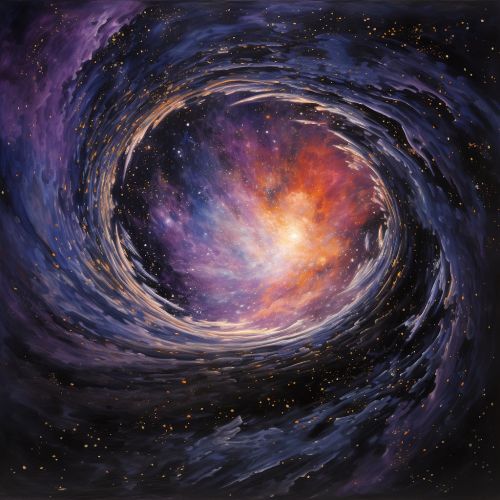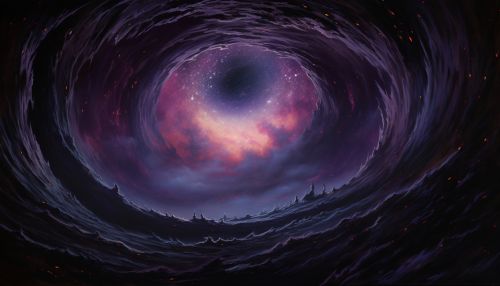Gravitational Horizon
Introduction
A gravitational horizon, also known as an event horizon, is a boundary in spacetime beyond which events cannot affect an outside observer. In layman's terms, it is defined as "the point of no return" in a black hole, where the gravitational pull becomes so strong that escape is impossible, even for light.


Understanding Gravitational Horizons
The concept of a gravitational horizon is deeply rooted in general relativity. According to this theory, massive objects cause a distortion in spacetime, which is perceived as gravity. When an object is so dense that its escape velocity exceeds the speed of light, it forms a black hole. The boundary around this region, from which no escape is possible, is the gravitational horizon.
The Role of Mass and Density
The size of a gravitational horizon is directly related to the mass and density of the black hole. The more massive the black hole, the larger the gravitational horizon. Conversely, a less massive but extremely dense object can also have a large gravitational horizon. This is a direct consequence of the Schwarzschild radius equation, which describes the size of the event horizon in relation to the mass of the black hole.
Types of Gravitational Horizons
There are several types of gravitational horizons, each with unique properties and behaviors. These include the event horizon, the apparent horizon, and the Cauchy horizon.
Event Horizon
The event horizon is the most commonly known type of gravitational horizon. It is the boundary around a black hole from which nothing, not even light, can escape. The event horizon is not a physical barrier but a point of no return. Once crossed, there is no way to escape the black hole's gravitational pull.
Apparent Horizon
The apparent horizon is a more dynamic concept. It is the boundary where light rays emitted are bent back towards the black hole due to its intense gravity. The location of the apparent horizon can change depending on the observer's perspective and the black hole's properties.
Cauchy Horizon
The Cauchy horizon is a theoretical concept found within rotating black holes, also known as Kerr black holes. It is the boundary between the region where all paths lead towards the singularity and the region where some paths could escape.
Observing Gravitational Horizons
Observing gravitational horizons is a challenging task due to their nature. They do not emit light or any other form of electromagnetic radiation. However, they can be detected indirectly through their gravitational effects on nearby matter and light.
Gravitational Lensing
One of the ways to observe a gravitational horizon is through a phenomenon known as gravitational lensing. This is the bending of light around a massive object, such as a black hole. The distortion of light can provide clues about the presence and properties of a gravitational horizon.
Accretion Disk Observations
Another method of observing gravitational horizons is through the study of accretion disks. These are disks of matter that form around a black hole. As matter falls into the black hole, it heats up and emits X-rays. By studying these X-rays, scientists can infer the presence of a gravitational horizon.
Implications and Applications
Gravitational horizons have significant implications for our understanding of the universe. They challenge our concepts of space, time, and the nature of reality itself. They also have potential applications in the field of quantum computing and information theory.
Quantum Computing
The study of gravitational horizons has led to the development of the black hole information paradox, which has implications for quantum computing. This paradox arises from the conflict between quantum mechanics and general relativity and has sparked significant research in the field of quantum information theory.
Time Dilation
Gravitational horizons also have implications for the concept of time dilation in general relativity. Time dilation is the difference in elapsed time measured by two observers due to a velocity difference relative to each other, or to a gravitational potential difference between their locations. Near a gravitational horizon, time appears to slow down, an effect known as gravitational time dilation.
